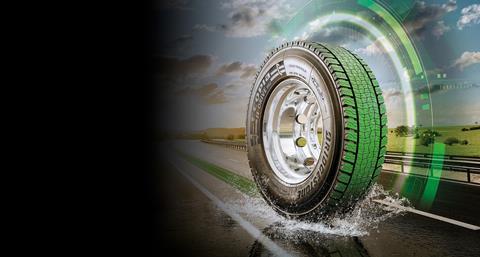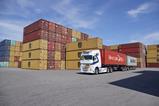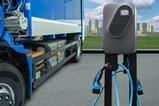Bridgestone has made a compelling argument for the fuel-efficient and carbon-reducing features of its Duravis and Ecopia tyres, following a four-month academic research initiative with Coventry University aimed at addressing the ongoing cost-of-living crisis.

The project was undertaken by Sreyas Sunil Kunnappally, a Business Analytics Masters Graduate at Coventry University. The report presents conclusive evidence of the benefits of using Bridgestone’s Ecopia and Duravis ranges, including fuel savings and significant reductions in CO2 emissions.
According to the findings, using Ecopia H002 tires on every long-haul Heavy Goods Vehicle (HGV) in the UK would save up to 40,000 tonnes of CO2 annually. This saving equates to a fuel cost reduction of between £2,200 and £3,200 per HGV. The study considered only HGVs weighing above eight tonnes, and the results were based on all vehicles running on ‘D class’ tyres and switching to the ‘A class’ Ecopia range on all axles.
Similarly, the report found that using Duravis tyres could reduce up to 3 million tonnes of CO2 emissions per year in the UK’s haulage sector. The fuel cost reduction per regional truck ranges from £1,300 to £1,900, depending on the truck’s weight and distance.

This study is Bridgestone’s most comprehensive piece of product research since launching the Ecopia and Duravis ranges in 2018. It highlights the technology used in manufacturing Bridgestone’s premium tyres has a significant impact on fuel efficiency and emissions reduction. The study also reveals that around 35% of fuel efficiency is associated with the tyres a vehicle operates on, emphasising the crucial role of tyres in enhancing a vehicle’s efficiency.
Andrea Manenti, Bridgestone’s North Region Vice President, praises the study and says that it demonstrates the financial and environmental benefits of Bridgestone’s Ecopia and Duravis ranges. She notes the strain on fleet customers’ pockets is high, and sustainability has become more critical than ever. Bridgestone’s study goes a long way in underlining the fact that its products provide significant benefits to commercial fleets, both financially and environmentally.


















